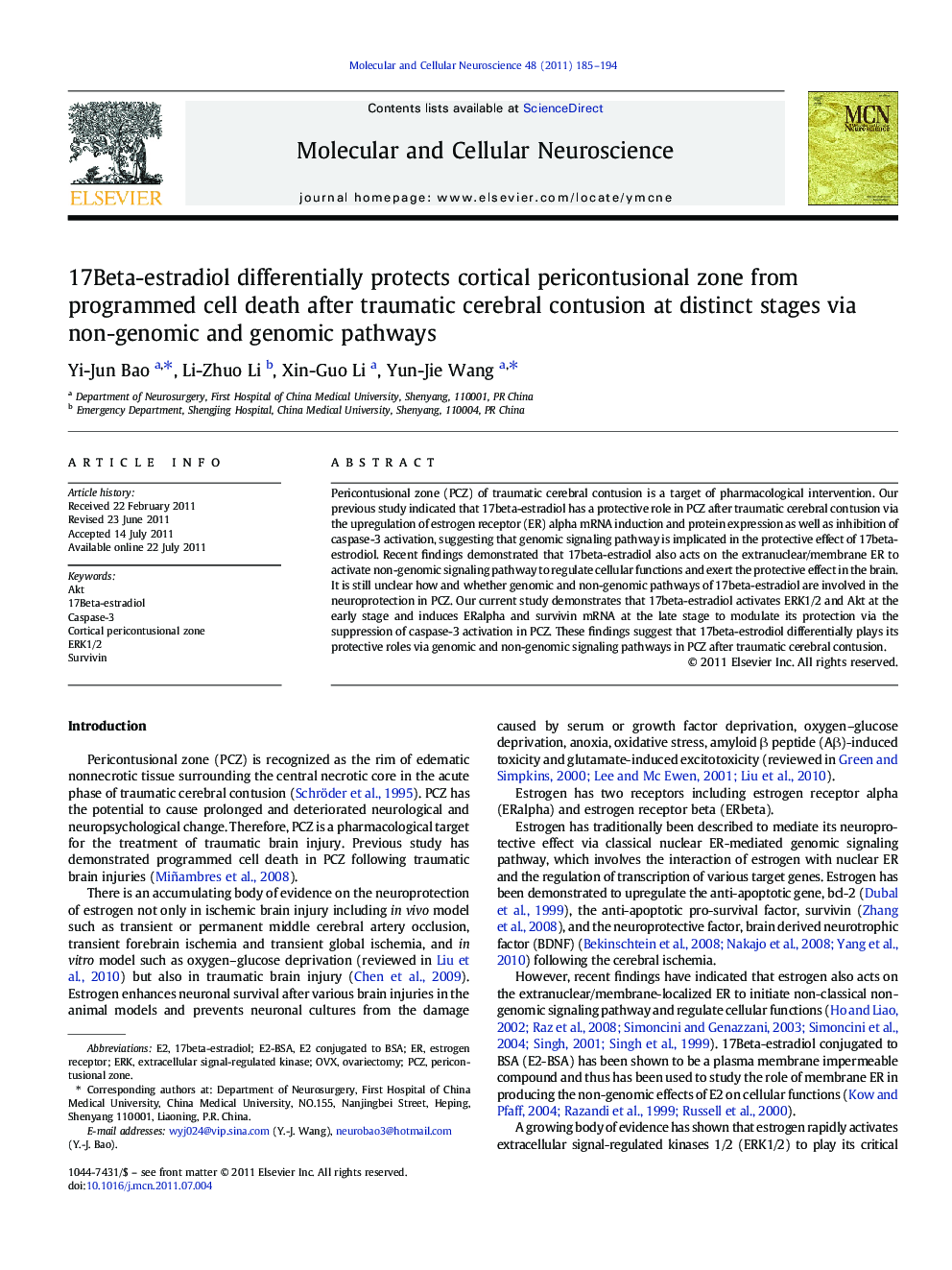| Article ID | Journal | Published Year | Pages | File Type |
|---|---|---|---|---|
| 10956592 | Molecular and Cellular Neuroscience | 2011 | 10 Pages |
Abstract
Pericontusional zone (PCZ) of traumatic cerebral contusion is a target of pharmacological intervention. Our previous study indicated that 17beta-estradiol has a protective role in PCZ after traumatic cerebral contusion via the upregulation of estrogen receptor (ER) alpha mRNA induction and protein expression as well as inhibition of caspase-3 activation, suggesting that genomic signaling pathway is implicated in the protective effect of 17beta-estrodiol. Recent findings demonstrated that 17beta-estradiol also acts on the extranuclear/membrane ER to activate non-genomic signaling pathway to regulate cellular functions and exert the protective effect in the brain. It is still unclear how and whether genomic and non-genomic pathways of 17beta-estradiol are involved in the neuroprotection in PCZ. Our current study demonstrates that 17beta-estradiol activates ERK1/2 and Akt at the early stage and induces ERalpha and survivin mRNA at the late stage to modulate its protection via the suppression of caspase-3 activation in PCZ. These findings suggest that 17beta-estrodiol differentially plays its protective roles via genomic and non-genomic signaling pathways in PCZ after traumatic cerebral contusion.
Keywords
Related Topics
Life Sciences
Biochemistry, Genetics and Molecular Biology
Cell Biology
Authors
Yi-Jun Bao, Li-Zhuo Li, Xin-Guo Li, Yun-Jie Wang,
